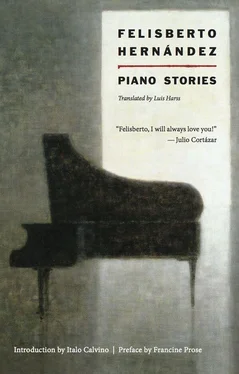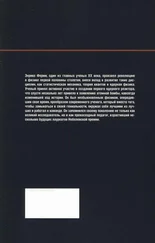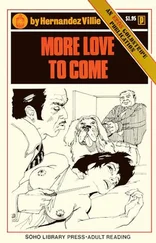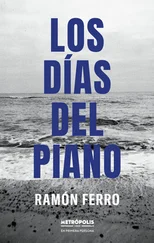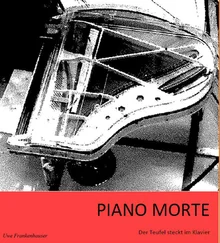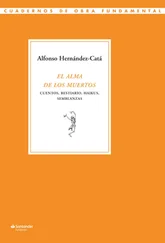Felisberto Hernandez - Piano Stories
Здесь есть возможность читать онлайн «Felisberto Hernandez - Piano Stories» весь текст электронной книги совершенно бесплатно (целиком полную версию без сокращений). В некоторых случаях можно слушать аудио, скачать через торрент в формате fb2 и присутствует краткое содержание. Год выпуска: 2014, Издательство: New Directions, Жанр: Современная проза, на английском языке. Описание произведения, (предисловие) а так же отзывы посетителей доступны на портале библиотеки ЛибКат.
- Название:Piano Stories
- Автор:
- Издательство:New Directions
- Жанр:
- Год:2014
- ISBN:нет данных
- Рейтинг книги:4 / 5. Голосов: 1
-
Избранное:Добавить в избранное
- Отзывы:
-
Ваша оценка:
- 80
- 1
- 2
- 3
- 4
- 5
Piano Stories: краткое содержание, описание и аннотация
Предлагаем к чтению аннотацию, описание, краткое содержание или предисловие (зависит от того, что написал сам автор книги «Piano Stories»). Если вы не нашли необходимую информацию о книге — напишите в комментариях, мы постараемся отыскать её.
Piano Stories
Piano Stories — читать онлайн бесплатно полную книгу (весь текст) целиком
Ниже представлен текст книги, разбитый по страницам. Система сохранения места последней прочитанной страницы, позволяет с удобством читать онлайн бесплатно книгу «Piano Stories», без необходимости каждый раз заново искать на чём Вы остановились. Поставьте закладку, и сможете в любой момент перейти на страницу, на которой закончили чтение.
Интервал:
Закладка:
My friends came to see me during intermission. They had not been able to wait until the concert was over to tell me of the praise I had been receiving from the family that sat behind them, the same one that had been so critical of the previous concert. They had spoken to other people, too, and decided to give a small lunch for me afterward.
All ended well, with two encores. And on my way out I heard a girl in the crowd say:
“ He’s the music box!”
The Dark Dining Room
For some months my job was to play the piano in a dark dining room. An elderly lady was my only audience. She didn’t care who played for her — and I can’t say my heart was in my playing. But during the pauses between pieces — when neither of us spoke — the silence set my mind to working in unusual ways.
I had landed the job through the Pianists’ Association. The boys there had often helped me find work with pop music bands. Recently they had even sponsored one of my concerts. Then, one afternoon, the director had called me aside:
“Hey, I’ve got a little something for you. It’s not much, but, who knows” — I had already noticed the wicked gleam in his eye — “it could lead to bigger things. A rich widow wants you to play for her twice a week. The sessions are to last an hour each and she’ll pay a buck and a half a session.”
He broke off and slipped out for a moment because they were calling him from the next room.
He had expected I would find it depressing to work for such low wages and had spoken half-jokingly, but also cajolingly, because work was scarce and I would be wise to grab the first opportunity that came along.
I would have loved to be able to tell him how happy the offer made me, but it would have been difficult for me to explain, and for him to understand, why entering unknown homes was so important to me.
When he returned I was on a cloud, all puffed up at the thought that the widow must have heard my concert, or my name, or seen my picture or articles about me in the papers, and I asked him:
“Did she say it had to be me?”
“Not really. She just wanted a pianist.”
“To play good music?”
“I don’t know. You can discuss that with her. Here’s the address: ask for Miss Moppet.”
It was a two-story house with marble balconies. I was impressed by the oversized entrance hall with walls of even finer marble than the balconies, their shades of color indistinct, as if they weren’t really living there but were still in their faraway country of origin.
A pair of beveled windows watched me. It was the double door to the patio, with twin panes extending far down the slight frame: I thought of a lady in a low-cut or low-waisted dress. The curtains on the door were so flimsy it seemed I had surprised it in its underwear. Through the curtains I could see a swaying fern almost as tall as a palm.
A good while after I had rung the bell, an enormous woman emerged from the depths of the patio. Until she had opened the door I could not quite believe she had a cigarette dangling from her lips. Without greeting me, she asked:
“You the one from the Pie anists’ Association?”
When I nodded she let me in, turned on her heel and led the way back across the patio. The image of her talking mouth stuck with me: I kept seeing the lit cigarette twisting between her fleshy lips. We had reached a corner of the patio that was invisible from the entrance hall. Lowering myself into an armchair to which she had directed me with a look through half-shut eyes, I asked:
“Are you Miss Moppet?”
“If Miss Moppet heard you call me that she’d fire us both. But never mind, I was expecting you.”
She opened the door to the dining room. Its glass had a scene with storks etched on it. Her blonde head was at a level where it coincided with the head of a stork that was about to swallow a fish it held in its beak.
I barely had time to look around the wide patio full of plants and lined with colorful glazed tile when the big blonde reappeared with a dessert plate. She sat in a chair next to my armchair, laying the plate on another chair, and said:
“She won’t be long. I’ve taught her to ring the bell whenever she comes in from the street. I told her if she left the door open she’d have thieves.”
For a long moment I couldn’t find my voice, as if I had to search my pockets for it, until I managed to say:
“With her good taste, no wonder. .”
She didn’t let me finish.
“It’s not her taste — a real cultured gent used to live here, a doctor . He lost his daughter and sold her the house when she was still a young girl — but already a widow and rich.”
She flicked her cigarette ash on the dessert plate, nearly knocking it off the chair.
“What the doctor didn’t have was a pie ano. She bought that — and lived to regret it, I can tell you.”
I looked at her wide-eyed and possibly open-mouthed as well. She seemed to like my way of listening because the standoffishness she’d shown at first had disappeared and she chattered away until the lady of the house arrived. Her favorite topic was anything connected with Miss Moppet: no matter what else she might be talking about, it seemed she couldn’t help gradually and almost inadvertently falling back on it.
I asked her:
“Is Miss Moppet as tall as you?”
She laughed.
“When we moved into this house she made me lower all the mirrors — too bad if I have to stoop to see myself.”
Suddenly, and irrelevantly — as if she had left a pot simmering and it was time to stir it again — she returned to the topic of the pie ano.
“She lived to regret it, all right. She bought it so a boyfriend she had could play it. He wrote a tango and called it ‘Moppet’ in her honor. Then, one night, he left for Buenos Aires. He hadn’t wanted her to see him off, but she insisted on going. I couldn’t stop her and went along. He was late for the boat. . and when he showed up he had another woman on his arm and they ran up the gangway together.”
I started to reach out to catch the dessert plate, which seemed about to fall again. She saw my arm twitch and told me not to bother. But just then the bell rang and she swept up the plate and vanished through the scene of the glass storks.
A few seconds later I made out a purple shadow pressed against the door to the entrance hall and heard nails rapping impatiently on the glass. The big blonde opened the door and a short woman stepped right in and started talking about the butcher. I had the impression that one of the short woman’s eyes was fixed on me. I saw her in profile, and, although elderly, she did not seem ugly. But I remember what happened when she began to turn her face slowly toward me: it was such a narrow face that it gave me a shock. I had felt the same effect coming around to the front of a house built at a sharp angle, on a diagonal: it could almost have been said that face existed only in profile, with no front except for the bit of space between the eyes, which were skewed, the left one aimed straight ahead, the right one to the right. To compensate for the face’s narrowness, her hair was done up in a promontory that displayed its various colors — black, several shades of brown and strands of dirty white — and ended in a tight knot where all the colors combined.
Her eye fastened on me all the way, she crossed the patio without a word, until she stood before me:
“So you’re the pianist? You want to come in?”
She carried her promontory toward the dining room door. In spite of all that hair, the top of her head barely reached the foot of the stork with the fish in its beak. When we pulled the chairs back from the large table, the sound they made echoed like a roar. It was a dark room with dark furniture and its own dark silence — in which her voice sounded like a desecration.
Читать дальшеИнтервал:
Закладка:
Похожие книги на «Piano Stories»
Представляем Вашему вниманию похожие книги на «Piano Stories» списком для выбора. Мы отобрали схожую по названию и смыслу литературу в надежде предоставить читателям больше вариантов отыскать новые, интересные, ещё непрочитанные произведения.
Обсуждение, отзывы о книге «Piano Stories» и просто собственные мнения читателей. Оставьте ваши комментарии, напишите, что Вы думаете о произведении, его смысле или главных героях. Укажите что конкретно понравилось, а что нет, и почему Вы так считаете.
